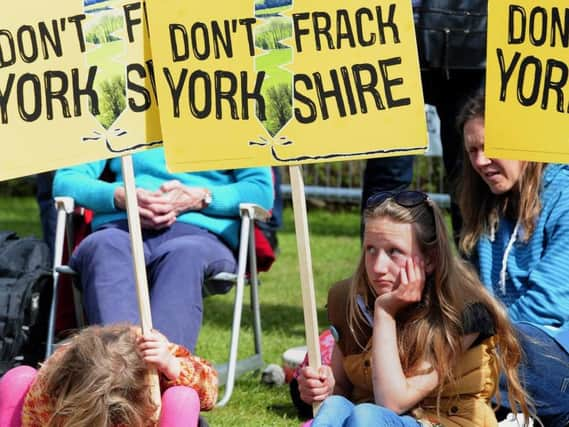Fracking: '˜People will be affected across Yorkshire... property prices will drop'


In the US, where some 150,000 wells have been dug, land ownership rules mean residents living near such sites are often in line for a payout. In the UK, homeowners do not own the land beneath their homes, leaving them with little legal recourse.
Advertisement
Hide AdAdvertisement
Hide Ad“For residents, the above-ground stuff is probably worse; you will get spillages but there is dirt, muck and dust,” said Dr Coffey, who specialises in industrial policy, the automotive industry and related energy issues. “Just the movement of trucks back and forth is going to create much more traffic pollution and dust. If you have a house and someone starts up an industrial plant behind it, however brilliant they are at it, you will still have an industrial plant behind your house.
“Someone has to be near this industrial activity. People will be affected, I don’t think there is any way around that. One of the big negatives is the effect on property prices. If you are living in a lovely Yorkshire dale and fracking starts nearby, your property might become less valuable.”
Though fracking is not the most carbon-emitting type of fossil fuel, Dr Coffey says, it does emit methane, which has a greenhouse effect eight times as potent as carbon dioxide. And at international level the increased prevalence of shale gas from fracking helps bring down the price of oil, which continues society’s reliance on environmentally unfriendly fossil fuels at the expense of greener alternatives.
Advertisement
Hide AdAdvertisement
Hide AdProfessor Rob Ward, director of groundwater science at the British Geological Society (BGS), is among a team that has been carrying out tests at Kirby Misperton for two years. This is to gather ‘baseline’ data, independently, before any potential work is begun. They test surface water, seismicity, air quality and ground motion. Even with trucks now on site, their equipment picks up the change in environmental conditions.
“We monitor, and continue to monitor,” he said. “We can provide independent data, and we put all of that in the public domain. Hopefully it’s reassuring to the public that information is being collected responsibly.”
Read more:
Advertisement
Hide AdAdvertisement
Hide Ad